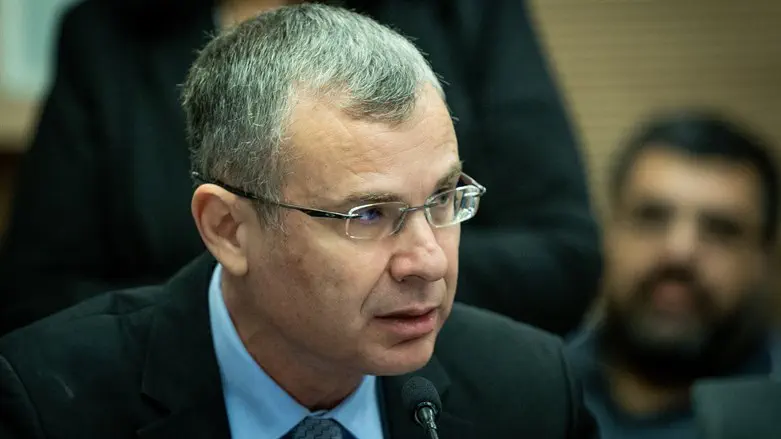
Justice Minister Yariv Levin published for the first time this evening (Wednesday) the draft of his bill to reform Israel's judicial system.
Among other things, according to the proposal, the composition of the committee for the selection of Supreme Court justices will be changed, the court's ability to annul laws enacted by the Knesset will be limited and an Override Clause will be enacted allowing a majority of 61 MKs to repass laws struck down by the Supreme Court.
According to the proposal, the committee for the selection of Supreme Court justices will have 11 members and will include the Justice Minister, who will serve as chairman of the committee, two ministers who will be chosen by the government and three chairmen of committees in the Knesset - the Constitution Committee, the Knesset Committee (two chairmen who are always members of the coalition) and a representative of the opposition. In addition, the president of the Supreme Court and two Supreme Court justices elected by the Supreme Court will sit on the committee.
In his proposal, Levin states that in addition two "public representatives" will sit on the committee to be chosen by the Justice Minister - one of whom will be an attorney.
It is further proposed that each branch of government - the Knesset, the federal government and the judiciary - determine its own representatives and no branch will interfere in the selection of the representatives of the other branches, nor in the working procedures of the committee or in their judgment and finally in their decisions on the selection of justices.
According to the proposal, appointing judges to the Supreme Court will require a majority of 6 out of 11 committee members and not 7 out of 9 as has been the case until now.
The bill also includes the abolishment of the 'reasonableness standard' for striking down laws and government actions.
The bill seeks to establish that the term of office of the president of the Supreme Court and their deputy will be a maximum of six years. If at the end of the six-year term, the president and their deputy do not reach retirement age, they will continue to serve in the Supreme Court as normal justices.
Candidates who have never served in the Supreme Court can also be elected to the position of President of the Supreme Court, while the seniority system used today will be abolished.
According to the proposal, a public hearing will be held for candidates for the position of justices on the Supreme Court.
